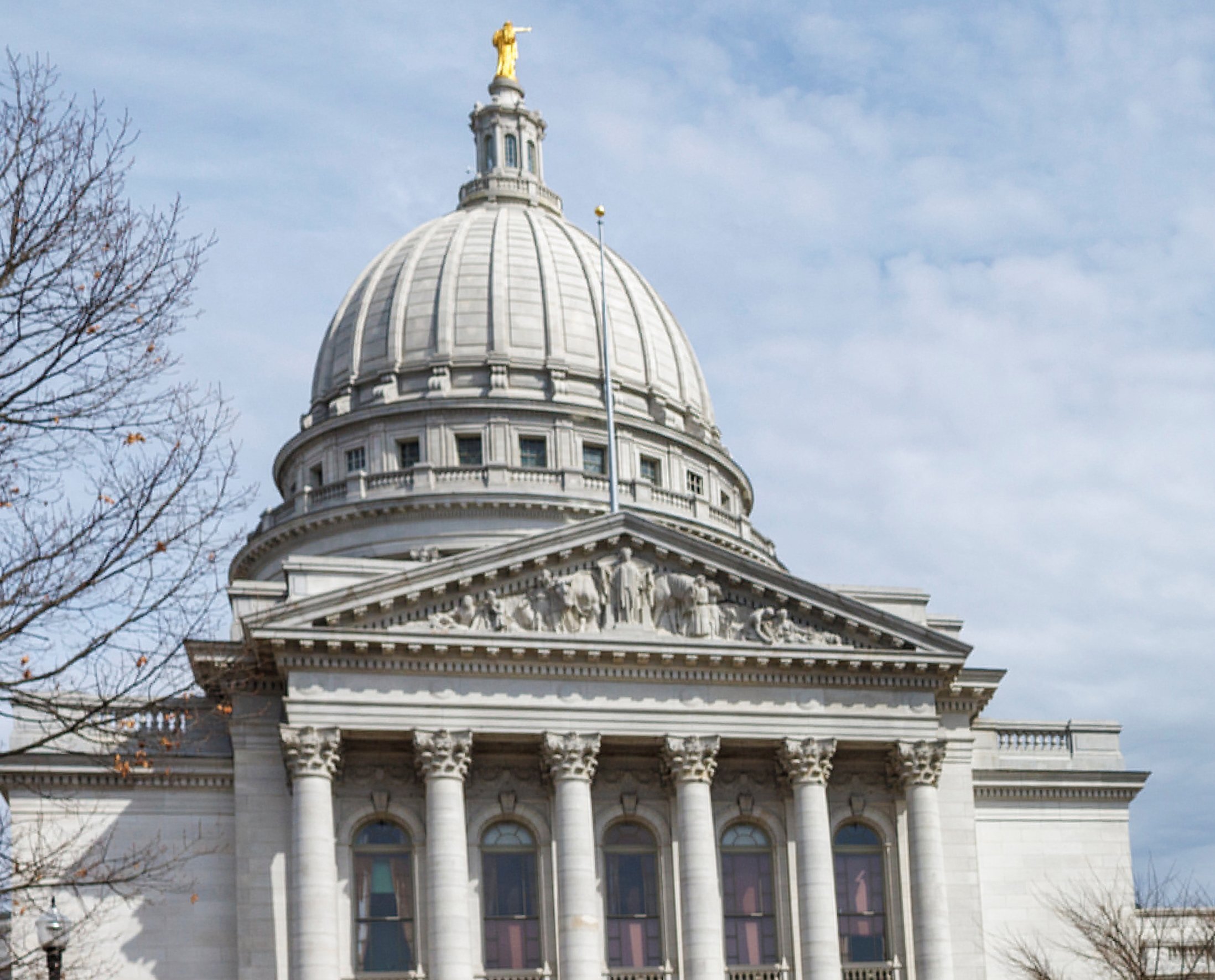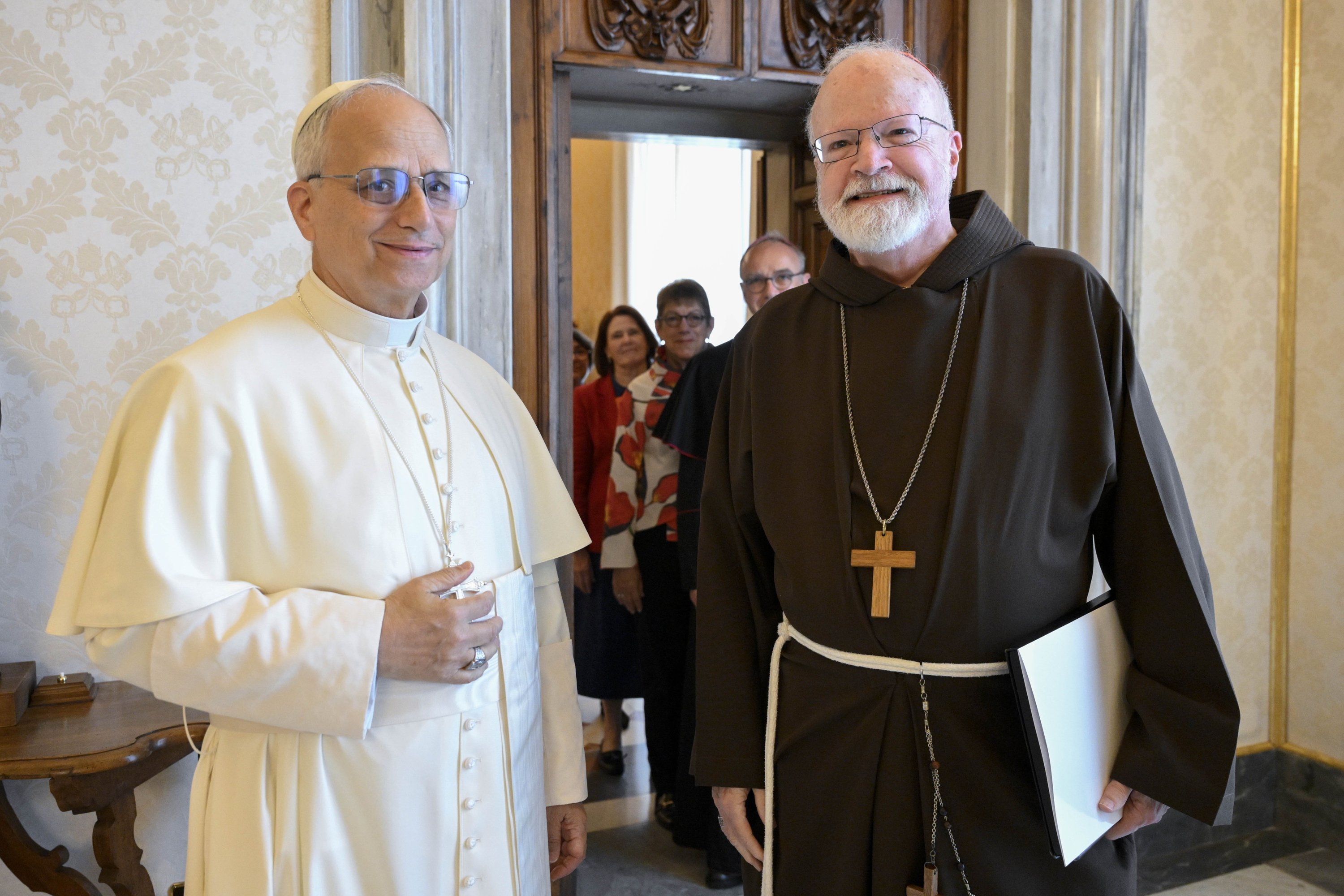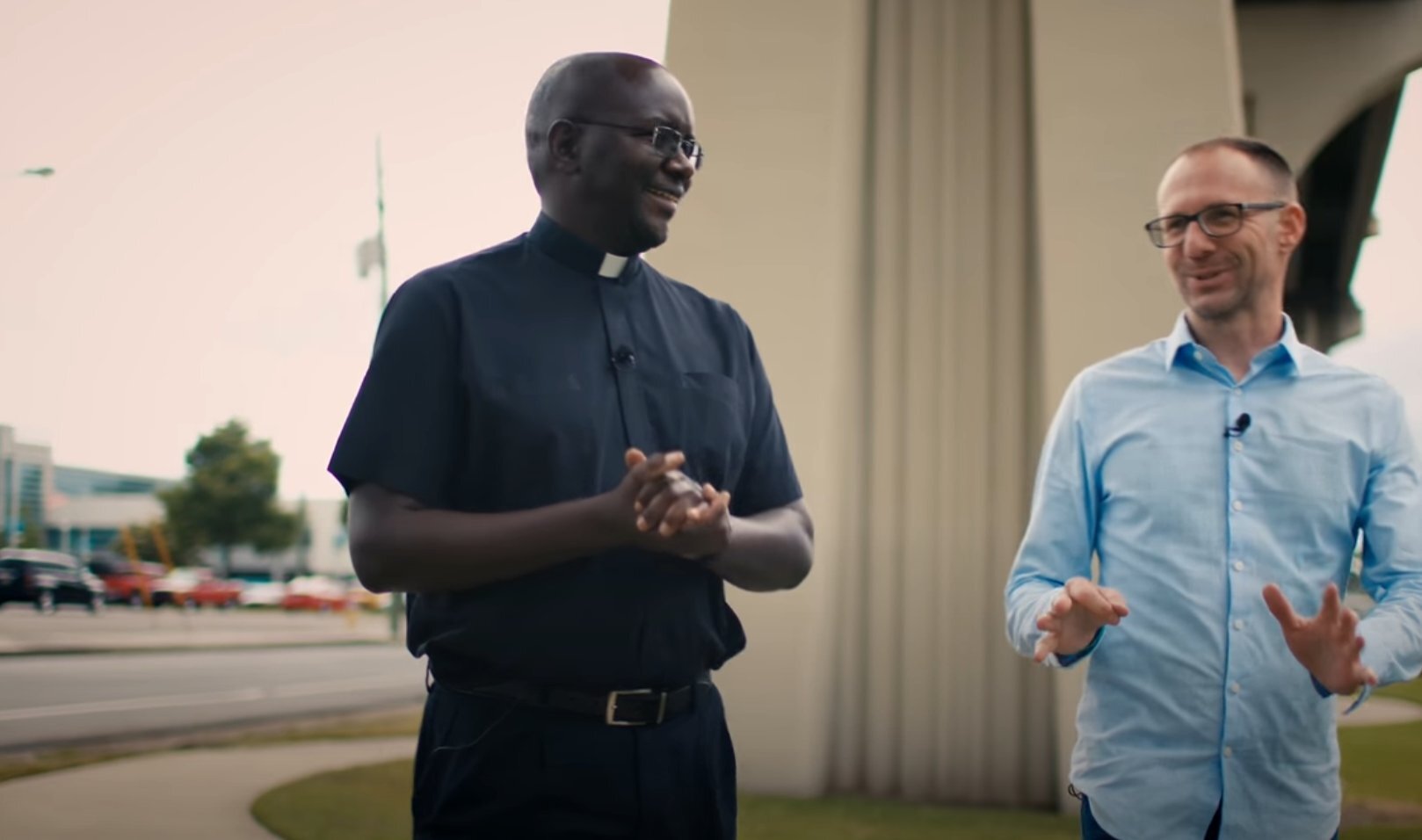Posted on 06/6/2025 00:00 AM (CNA - Saint of the Day)
 St. Marcellin Champagnat
St. Marcellin Champagnat
Feast date: Jun 06
"All to Jesus through Mary, and all to Mary for Jesus.” - St. Marcellin Champagnat
Marcellin Champagnat was born on May 20, 1789, the year of the French Revolution, and died on June 6, 1840. He was a priest of the Society of Mary and the founder of the Little Brothers of Mary, a congregation of brothers devoted to the education of the young.
He was the ninth child of a very pious catholic family and develpoed a very deep devotion to Mary as a young boy, which he learned from an aunt who was a religious. He also had a great capacity for work, which he learned from his father.
Champagnat left school at the age of seven, and when, at the age of 14, he discovered through the help of a priest his own vocation to the priesthood, he had to begin to study again almost from scratch.
Aware of his limitations, and against the advice of those around him, he entered the minor seminary and struggled to learn the fundaments of schooling. However, never losing sight of the will of God for him, he struggled through these difficult years with his eyes fixed on the horizon of God’s call.
In the major seminary he became friends with the future Curé of Ars, Jean-Marie Vianney. He was ordained with his companions on July 22, 1816, the feast of St. Mary Magdalen.
One of his desires was to found a congregarion devoted to the name of Mary in order to re-evangelize French society in the wake of the French Revolution. He saw his main task as the Christian education of the young, and this inclination was quickened and solidified upon encountering a dying young boy who had nearly no knowledge of the faith.
He foudned the Little Brothers of Mary on January 2, 1817, when two young men decided to join him in his mission. He set about at once, in addition to his parish ministry, to educate uncultured young boys and turn them into ardent apostles of Jesus Christ, all the while living in abject poverty and trusting totally in the will of God, and the solicitous protection of the Virgin Mary, to whom he gave all, for the sake of the Lord Jesus.
Marcellin Champagnat died at the age of 51, his health having been worn out by his immense workload and an illness.
At his canonization in 1999 by Pope JohnPaul II, the Holy Father said of him,“St Marcellin proclaimed the Gospel with a burning heart. He was sensitive to the spiritual and educational needs of his time, especially to religious ignorance and the situations of neglect experienced in a particular way by the young.”
Posted on 06/6/2025 00:00 AM (CNA - Saint of the Day)
 St. Norbert
St. Norbert
Feast date: Jun 06
On June 6 the Catholic Church honors Saint Norbert of Xanten – who started out as a frivolous and worldly cleric, but was changed by God’s grace into a powerful preacher and an important reformer of the Church during the early 12th century.He is the founder of the Norbertine order.
Born around the year 1075 in the German town of Xanten, Norbert belonged to a high-ranking family with ties to the imperial court. As a young man he showed a high degree of intelligence and sophistication – which marked him out as a contender for offices within the Church, the state, or both. None of this, however, was any guarantee of a holy life. On the contrary, Norbert's gifts and advantages would prove to be a source of temptation even after he joined the ranks of the clergy.
Norbert was ordained as a subdeacon, and enrolled with a group of clerics in his town, before moving on to an appointment with the powerful Archbishop of Cologne. He went on to serve the German Emperor Henry V, in a position which involved the distribution of aid to the poor. In all of this, however, Norbert displayed no particular piety or personal seriousness, living a rather pleasurable and luxurious life.
Change would come from a brush with death, in approximately 1112: while riding on horseback near Xanten, he was caught in a storm and nearly killed by a lightning bolt. The frightened horse threw Norbert off, and he lay unconscious for some time. Sobered by the experience, he left his imperial post and began a period of prayer and discernment in a monastery. At age 35, he heard God calling him to the priesthood.
Radically converted to the ideals of the Gospel, Norbert was now set against the worldly attitude he had once embodied. This made him unpopular with local clerics, who responded with insults and condemnation. But Norbert was not turning back. He gave all of his wealth to the poor, reducing himself to a barefoot and begging pilgrim who possessed nothing except the means to celebrate Mass.
Pope Gelasius II gave Norbert permission to live as an itinerant preacher, and he was asked to found a religious order so that others might live after his example. He settled in the northern French region of Aisne, along with a small group of disciples who were to live according to the Rule of St. Augustine. On December 25, 1121, they were established as the Canons Regular of Premontre, also known as the Premonstratensians or Norbertines.
Their founder also established a women’s branch of the order, before returning to Germany for a successful preaching tour. He founded a lay branch of the Premonstratensians (the Third Order of St. Norbert), and went on to Belgium, where he preached against a sect that denied the power of the sacraments. His order was invited into many Northern European dioceses, and there was talk of making Norbert a bishop.
Though he avoided an earlier attempt to make him the Bishop of Wurzburg, Norbert was eventually chosen to become the Archbishop of Magdeburg in Germany. The archdiocese was in serious moral and financial trouble, and the new archbishop worked hard to reform it. His efforts were partly successful, but not universally accepted: Norbert was the target of three failed assassination attempts, made by opponents of his reforms.
When a dispute arose over the papal succession in 1130, Norbert traveled to Rome to support the legitimate Pope Innocent II. Afterward he returned to Germany and became a close adviser to its Emperor Lothar. In a sense, his life seems to have come full-circle: the first hints of his conversion had come on a trip to Rome two decades earlier, when he accompanied a previous emperor. This time, however, Norbert was seeking God’s will, not his own advancement.
With his health failing, Norbert was brought back to Magdeburg. He died there on June 6, 1134. Pope Gregory XIII canonized St. Norbert in 1582.
Posted on 06/5/2025 22:13 PM (CNA Daily News)
 The Embassy of Equatorial Guinea in Washington, D.C. / Credit: Kurt Kaiser, CC0, via Wikimedia Commons
The Embassy of Equatorial Guinea in Washington, D.C. / Credit: Kurt Kaiser, CC0, via Wikimedia Commons
Washington, D.C. Newsroom, Jun 5, 2025 / 18:13 pm (CNA).
President Donald Trump’s order this week to restrict foreign nationals in 19 countries from entering into the United States will impact six countries with a majority Catholic population and four other countries with a heavy presence of Catholics or other Christians.
According to the order, some of the countries are facing restrictions based on national security concerns and a high terrorism risk. Others were chosen due to high rates of people from those countries overstaying their visas for entry into the United States and remaining in the country unlawfully.
The order includes a near-total ban on three countries with a majority Catholic population: the Republic of the Congo, Equatorial Guinea, and Haiti. There are also partial restrictions on three others with Catholic majorities: Burundi, Venezuela, and Cuba.
The near-total ban will also affect Eritrea, where about half of the population is Christian. The largest denomination in Eritrea is the Eritrean Orthodox Tewahedo Church. The partial restrictions will affect Togo, as well, where about half of the population is Christian and the largest Christian segment is Catholic.
Chad, a Muslim-majority country with a large Christian minority, is also facing a near-total ban on entry. More than 40% of the population is Christian, half of whom are Catholic. The majority Muslim country Sierra Leone will be subject to partial restrictions. More than 20% of the people who live there are Christian, most of whom are Protestant.
Six other Muslim-majority countries with very small Christian populations are also subject to the near-total ban: Afghanistan, Iran, Libya, Somalia, Sudan, and Yemen. Burma, where most of the population is Buddhist, is also facing a near-total ban. Turkmenistan, a majority Muslim country, is facing partial restrictions, as is Laos, which is mostly Buddhist.
In a statement to CNA on Thursday, Bishop Mark Seitz, chairman of the Committee on Migration at the United States Conference of Catholic Bishops (USCCB), criticized the new restrictions.
“Our country’s proud tradition as a land of opportunity for people from all walks of life is increasingly contradicted by a system that makes legal immigration impossible for far too many,” said Seitz, who has frequently criticized Trump’s immigration policies.
“A broad ban on nationals from these countries further erodes trust in our legal immigration system and marginalizes entire peoples,” the bishop said. “I pray that these restrictions will be lifted in due course.”
The travel restrictions imposed by Trump include several exceptions. Those exempted include people who are lawful permanent residents of the United States, those who obtain immediate family immigrant visas, and adoptions, among others. Special exemptions are also granted to those suffering religious persecution in Iran and those who have worked directly alongside American forces in Afghanistan.
“[I] hope that the stated exceptions in the proclamation, such as those for Afghans who supported our country, immediate family members, and people seeking humanitarian protections, are honored,” Seitz said.
Anna Gallagher, the executive director of the Catholic Legal Immigration Network (CLINIC), also criticized the order. CLINIC works closely with the USCCB.
“We are particularly concerned about how this policy will affect families trying to reunite in the United States,” Gallagher told CNA.
“This was a primary concern of ours with previous travel bans implemented under the first Trump administration,” she continued. “We have already seen the devastating impact that cancellation of refugee and humanitarian immigration opportunities has had so far this year in terms of keeping families apart, and this policy will only deepen and extend that harm.”
Upon announcing the travel restrictions on Wednesday, Trump said they were motivated by “extreme dangers posed to our country by the entry of foreign nationals who are not properly vetted as well as those who come here as temporary visitors and overstay their visas.”
The president cited the recent terrorist attack in Colorado, in which an Egyptian man who overstayed his visa admitted to throwing molotov cocktails at people attending a vigil for Israeli hostages.
“We’ve seen one terror attack after another carried out by foreign visa overstayers from dangerous places all over the world and thanks to [former President Joe] Biden’s open door policies,” the president said. “Today, there are millions and millions of these illegals who should not be in our country.”
Trump imposed a similar travel ban during his first term in office, which was mostly focused on restricting travel from certain countries based on national security concerns.
Posted on 06/5/2025 21:34 PM (CNA Daily News)
 Kentucky Capitol. / Credit: Alexey Stiop/Shutterstock
Kentucky Capitol. / Credit: Alexey Stiop/Shutterstock
CNA Staff, Jun 5, 2025 / 17:34 pm (CNA).
Here is a roundup of recent pro-life and abortion-related news:
The American Civil Liberties Union of Kentucky recently dropped a lawsuit it filed last year challenging Kentucky’s protections for unborn children.
The ACLU filed a motion last Friday to voluntarily dismiss the lawsuit and did not give a reason.
The organization filed the suit, Poe v. Coleman, last year in a state court in Louisville on behalf of a woman identified under the pseudonym Mary Poe for her privacy. She was seven weeks pregnant at the time.
The suit challenged Kentucky’s laws that protect unborn children from abortion: namely the state’s trigger law prohibiting most abortions after Roe v. Wade was overturned and a separate law protecting unborn children after six weeks of life. Kentucky law allows abortions only when the mother’s life or health is at stake. In 2023, the state recorded only 23 abortions.
ACLU of Kentucky Executive Director Amber Duke said in a statement that the group “will not be providing additional details about the dismissal,” noting that “decisions about health care are and should remain private.” But Duke pledged that the group “will never stop fighting to restore abortion access” in the state.

Kentucky Attorney General Russell Coleman celebrated the withdrawal in a post on X, saying that “Kentuckians can be proud that our pro-life values won the day today and innocent lives will continue to be saved as a result.”
A young pro-life couple from Ohio recently filed a free speech lawsuit after the husband was arrested for speaking on a megaphone outside of an abortion clinic.
Zachary and Lindsay Knotts filed the lawsuit on May 30, saying that their freedom of speech and religion was violated.
Since December 2024, the Knotts have spent Saturday mornings participating in sidewalk advocacy to save the lives of the unborn at the Northeast Ohio Women’s Center, an abortion clinic in Cuyahoga Falls, according to the lawsuit.
Zachary Knotts was arrested on a charge of disorderly conduct. He had been using a megaphone to amplify his voice over the noise pro-abortion escorts were making to drown him out.
The lawsuit noted that abortion escorts used whistles and kazoos to drown out the Knotts’ speech, but “only Mr. Knotts was given a citation and prosecuted for disorderly conduct.”
The lawsuit called the arrest “retaliatory” and said it violated free speech because the ordinance was not equally applied, banning amplified speech based on the nature of the speech.
The attorneys general of Massachusetts, California, New Jersey, and New York this week called on the U.S. Food and Drug Administration (FDA) to eliminate restrictions on the abortion drug mifepristone following the FDA’s recent announcement that it would review the drug for safety concerns.
In a joint petition on June 5, the four states’ attorneys general called on the FDA to remove prescriber certification, patient agreement forms, and pharmacy certification requirements.
New York Attorney General Letitia James said the drug has a “25-year safety record” and that the FDA should “lift these unnecessary barriers.”
The petition follows the recent commitment by the FDA to review the drug for safety concerns in the wake of a study that found that about 11% of women suffer at least one “serious adverse event” within 45 days of taking mifepristone for an abortion.
A chemical abortion takes place via a two-pill regimen. The first pill, mifepristone, kills the child by blocking the hormone progesterone, which cuts off the child’s supply of oxygen and nutrients. A second pill, misoprostol, is taken between 24 to 48 hours after mifepristone to induce contractions meant to expel the child’s body from the mother, essentially inducing labor.
In April, a first-of-its-kind study by the Ethics and Public Policy Center found that of 865,727 mifepristone-taking abortion patients over six years, thousands were hospitalized, more than 1,000 needed blood transfusions, and hundreds suffered from sepsis. Nearly 2,000 had a different life-threatening adverse event.
Posted on 06/5/2025 21:31 PM (Detroit Catholic)

Posted on 06/5/2025 21:24 PM (Detroit Catholic)

Posted on 06/5/2025 21:21 PM (Detroit Catholic)

Posted on 06/5/2025 21:17 PM (Detroit Catholic)

Posted on 06/5/2025 20:28 PM (Detroit Catholic)

New certification process, which goes into effect July 1, will allow ministers to 'fall more in love' with the faith, leaders hope